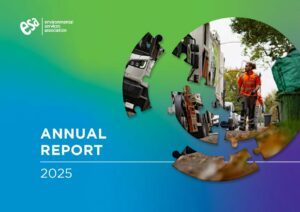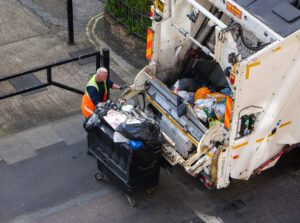By Guest Contributor, Rt Hon Dame Theresa Villiers DBE, former Secretary of State for the Environment, Food and Rural Affairs
The next few years will see implementation of changes to waste and recycling which are some of the most significant in decades.
Three reforms stand out: the move to simpler and more consistent recycling collections, the introduction of Extended Producer Responsibility for packaging, and the launch of a Deposit Return Scheme for drinks containers.
Together, they represent a real shift towards a system that is easier to understand, fairer in who pays for it, and more effective in using resources efficiently. They have the potential to radically alter our relationship with waste and to make our economy more circular and more sustainable.
But it is a long time since the previous government committed to these programmes in the 2018 Resources and Waste Strategy, and since I took them forward as Secretary of State by introducing the Bill to Parliament which became the Environment Act 2021. The relatively slow pace of implementation is a reminder that making a success of these complex initiatives will not be easy.
Much depends on how well the public understands and embraces the reforms. No matter how much effort goes into designing each of these three policies, their impact will depend on how the public responds. Engaging people will be central to delivering the truly transformational effect it is hoped these schemes will have.
Households across the land will be impacted. By making the rules simple, the incentives clear, and the benefits visible, I hope that policymakers can turn compliance into enthusiasm.
Clear and consistent national messages, supported by local communication, will be vital. Digital tools, community engagement, schools, and workplaces can all play a role in making the new systems feel natural and accessible. Engagement with small businesses tackling the obligation to separate their waste for the first time will be important, as will messages tailored for people living in flats.
Multiple communication channels will be needed; a purely digital campaign will not be enough. Communication targeting older people could include an element of nostalgia and a look back at the days when fizzy drink bottles were jealously hoarded so they could be returned to the shop and turned into cash.
As with any big reform, there is a risk that early logistical failures could undermine public confidence. So phased incremental implementation may be needed to reduce this risk and give the public time to get used to new systems. Defra should be prepared to be flexible to ease the transition to the new approach.
But as well as providing people with practical guidance and information on how to interact with the three schemes, there are arguments to be won on the overall merits of these reforms. We need to learn from what went wrong with the attempted DRS scheme in Scotland.
In recent times there has been a large degree of consensus between the three main parties on measures to promote recycling. But the rise of Reform may throw that into doubt.
We therefore need a narrative to make the ethical case for these forthcoming changes. Technical though they are, waste reforms should be supported by anyone with a patriotic outlook. What could be more important for those who love their country than preventing its scenic landscapes and its oceans being defaced by littered drinks containers?
There are strong moral arguments in favour of becoming a country which re-uses and recycles precious resources rather than using them once and throwing them away. Even if support for net zero goals is eroded, the case for more judicious use of resources and action to reduce our dependence on single use plastics is strong. Becoming a more circular economy is an important element of fulfilling our duty to hand on the environment to future generations in a better state than we found it.
These issues undoubtedly resonate with many children and young people. Plastics pollution was something repeatedly raised with me when I visited schools as an MP. And anyone involved in grass-roots political campaigning will know that the public really care about their bins. It’s a rare local election that does not have waste collection as a key battleground issue.
The plastic carrier bag charge showed that relatively small policy changes can have a dramatic impact on behaviour. A charge of just a few pence was sufficient to see use of bags plummet, and cause millions of people to stop treating them as something to use just once and throw away.
This demonstrates that environment and waste measures can generate real enthusiasm. Empowering people to lighten their impact on the planet by addressing the longstanding knowledge gap on what can and cannot be recycled, and what goes in which bin, can help us harness that enthusiasm.
Many want to do their bit to save the planet. Getting their kerbside recycling right, or dropping off a drinks container at a local shop, is a way every single person in this country can play a part in doing that. Engaging the public is not an afterthought – it is the foundation for a cleaner, more sustainable future. The great task of delivering that better future is truly something in which we can all play our part.




